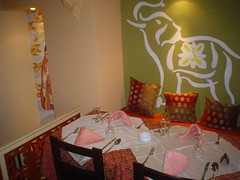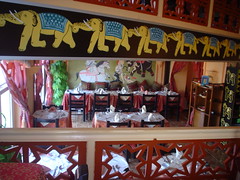Starting yesterday 11:30AM, the network of Tunisiana, Tunisia’s only private mobile phone operator, has been having problems, even going down for hours, and with outgoing and incoming calls being impossible. The problems persist to this very moment for two whole ranges of numbers.
Tunisie Telecom, the first telecom operator, also ran into similar problems yesterday, with their network rejecting calls. But things got back to normal on their side a bit quicker.
Many Tunisian blogs have written about this already, and it has been covered quite enough, but well I want to talk about a whole different angle of this problem.
This critical incident has been an ongoing one for over 24 hours, and up to this very second, not one of these telecom operators has said one thing about it to their clients; nothing, nada, zip, rien, zilch.
Their websites don’t even have the tiniest of messages announcing or explaining the problem, apologizing for the inconvenience caused to millions of clients, let alone giving insight into the reasons behind it and how long it is expected to last.
The news yesterday didn’t say a single thing, the newspapers today didn’t mention it, and generally speaking, there’s an information blackout surrounding this problem.
Online, the only things I find about this problem are on blogs and on WebManagerCenter, a Tunisian business news portal.
I find this totally abnormal, unprofessional and unexceptable!
When are Tunisian companies going to learn to communicate more with their clients, be more transparent about their plans and problems, and own up to their mistakes?
We’re in an age where information goes around very quickly, and unless you want the wrong information and lie packed rumours going around behind your back, you have to be the first out there with the right information and with answers for your clients.
The relationship between a client and a service provider is all about trust, that is what generates customer loyalty. Trust isn’t just by providing a great service, it’s also about being honest with your customers and telling them that you’re doing everything you can to make them happy even when things go wrong.
Tunisian companies in general have to stop taking their clients for granted and start working on building clear and transparent channels of communication with them; providing better services and customer support; going out of their way to make the client happy and be sure they’re satisfied.
As a client, I want to know what’s going on, and I personally feel let down and dissapointed in how this situation was handled, just like many others; that translates into a big chunk of trust and respect lost.

